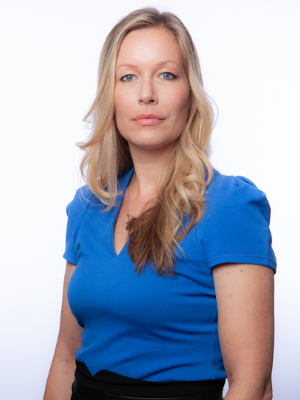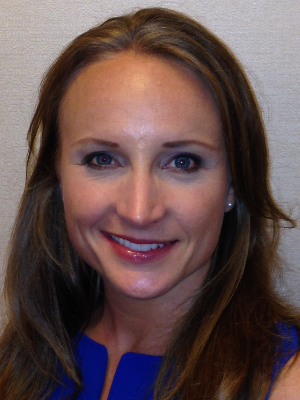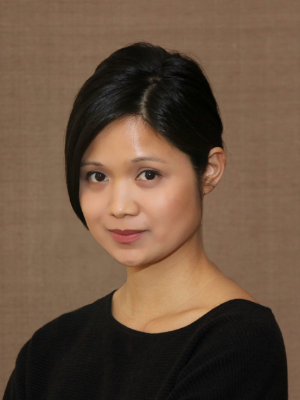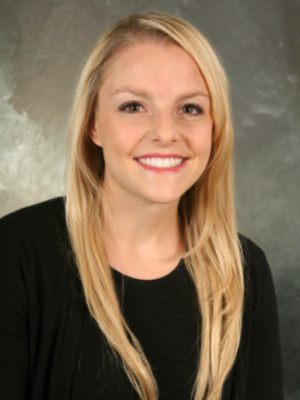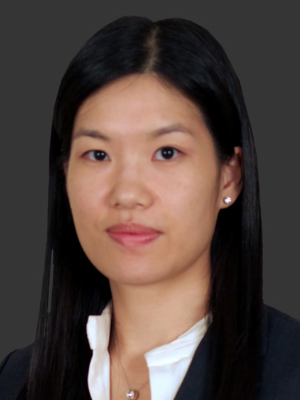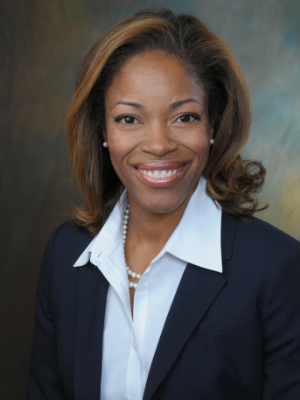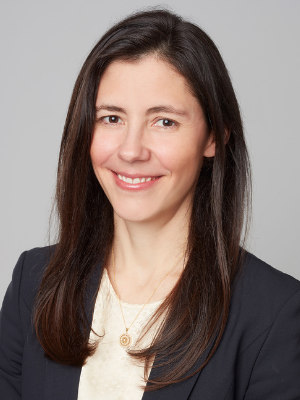 “I’m open to things going in a lot of different directions and to seeing things in a different way than people expect,” says Sara Coelho. “I really try to foster that approach, because novel solutions bubble up.”
“I’m open to things going in a lot of different directions and to seeing things in a different way than people expect,” says Sara Coelho. “I really try to foster that approach, because novel solutions bubble up.”
Coelho talks about why her practice is a jack-of-all-trades art, standing her ground as a woman and the creativity of receptivity within law.
The “Liberal Arts Area of Law”
With Shearman & Sterling since 2016, and promoted to partner this past July, Coelho has been in the insolvency practice for fifteen years.
“Any time you have an insolvency situation, by definition people can’t follow the law. When something isn’t working, you get to take a deep dive into why and have to figure out a way to make something of that, and the tools really vary depending on the business,” she says. “Every situation has its own dimensions, so you constantly get to learn something new. If you are a liberal arts major, you would like what I do.”
Coelho continues, “I’m often doing things I have no prior expertise in, for example, negotiating tax debt and tax statutes, because of the underlying needs of the situation,” she further explains. “Sometimes we litigate to get to a resolution of a dispute. Sometimes we create deals. We’ll use any field of law to construct a deal that takes the situation to a better place.”
Her area is so flexible that when students ask her about a typical day, Coelho tells them to give her a year and she’ll say what she was doing in that period of time. Collaboration with other lawyers and financial advisors is critical to her work: often part of the solution is bringing in the expert who knows the tried-and-true approach, and another is confronting an issue alien to anything she’s ever done. Hence, the sophistication of problems, quality of people and intellectual challenges have held her attention in this field.
The Creativity of Receptivity
Coelho feels persistence has served her. She has always been able to put her head down and commit to a project she’s taken on. She’s been called a “lawyer’s lawyer” in that she has an analytical curiosity and loves to go deep into a problem, which means encouraging a spaciousness for unexpected solutions.
“There’s often a real reluctance to bring forward something that is a little off the wall,” she observes, “but you could miss an opportunity that way.”
In law, creativity is often less conceiving of something new and bringing it into existence, but rather an artful receptivity to the hidden key that already exists that you’re not yet seeing.
“So much of law is a very set underlying body of concepts, and people lose track of a big percentage of it. So often there is just something lurking there, that’s pretty direct and obvious, but actually very hard to see if you don’t come at it with an open mindset,” she explains. “It’s a receptivity, an orientation of faith that there’s going to be useful things that emerge. It’s a melding of a creative mindset with the orthodox.”
Staking Her Ground As A Woman
While Coelho admits her field has an inadequate representation of women, especially senior partners, she also often finds there are more women than she realized. She also feels the reputation of being male-dominated deters women from considering a field they might thrive in: “There are women who are thriving in all of the difficult roles and more than you would think.”
At the same time, Coelho acknowledges that she does feels some pressure to be beyond perfect and tends to speak concisely, getting to her point quickly while she has the moment, whereas she witnesses men talk at length without the social pressure to be precise.
“I’m working on trying to take up more time and space, and defending the perimeter to be able to do that,” she notes, “because sometimes you can’t appropriately advocate otherwise.”
Coelho acknowledges that being a woman distinguishes you, but that advantage can backfire if you’re perceived as the woman lawyer and especially if there’s a general assumption of irrelevance.
For example, on a conference call for a major deal where both Coelho and another female counterpart lawyer represented different clients with predictably different perspectives, the opposing side confused their two arguments, because, she suspects, the woman lawyers’ voices were understood as interchangeable. Coelho finds it hard to imagine that same bewildering lack of differentiation occurring for a man.
“Things still go on, but at the same time, you’re just focused on the problem and the work,” says Coelho. She notes that self-validating verbal feedback from highly respected top lawyers has been a touchstone to measure her lawyering and has kept her from falling into an unproductive level of self-questioning, especially when she’s confronted with aggression or doubt.
Clarifying The “Stupid Questions“
In addition to helping associates become familiar with the essential craft of her “renaissance profession,” Coelho seeks to demystify some of the basics that challenged her. When she first began, she felt one of the hardest parts was just figuring out how things got done – down to how you frame an e-mail and how long you wait to chase up on it.
Coelho volunteers information and invites the conversation around questions she found perplexing when starting out, especially if the response she had was reactive or dismissive: “I try to ask, what would have been the most constructive response for me?”
“For example, as a lawyer, to say how much time should I spend on something is a very loaded question because obviously you should do the best job possible for the client. Well, the best job possible might mean thousands of hours or significant expense, and maybe the client doesn’t want that,” she notes. “So there’s always this judgment about how exactly to approach the problem, how much depth to go in and what are the optimal things to focus on. These are complex judgements people have to make, so I like to be transparent about that kind of process.”
Boiling down why inviting questions as a senior lawyer is important, Coelho says: “The stupid question is the most important one to ask because you definitely don’t want to make a stupid mistake.”
For women in particular, Coelho also emphasizes the importance of really stepping back to ask what you personally want, rather than letting the ongoing demands of your external environment, including simply keeping up with the work, dictate where you end up.
An Unforgettable Mentor
Coelho considers her grandmother the most mindful person she has ever met. As a child, Coelho would join her in hanging laundry, picking fruit or doing some other form of tending to ordinary things.
The most unforgettable moment that affected her was listening to her grandmother talk about one single lemon with such elaborate understanding and appreciation that it underlined a whole wisdom of her Grandmother’s way of living in the world: “Listening to her talk about this lemon and what it was, exactly why it had a different flavor than others and how you would use it, in such depth, crystallized for me her way of being and how wonderful that is. And how much better life is, if you can bring that sort of appreciation and experience to whatever it is you’re doing.”
Coelho adores her three and a half year old son, Caleb, and, in addition to being a prolific reader of social sciences “light” and economics, loves to garden – and as her grandmother, tend attentively to the small and sacred matters of the home.
By Aimee Hansen

